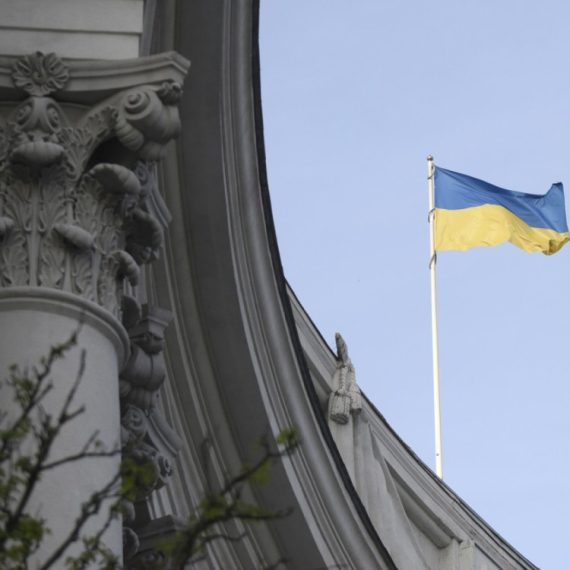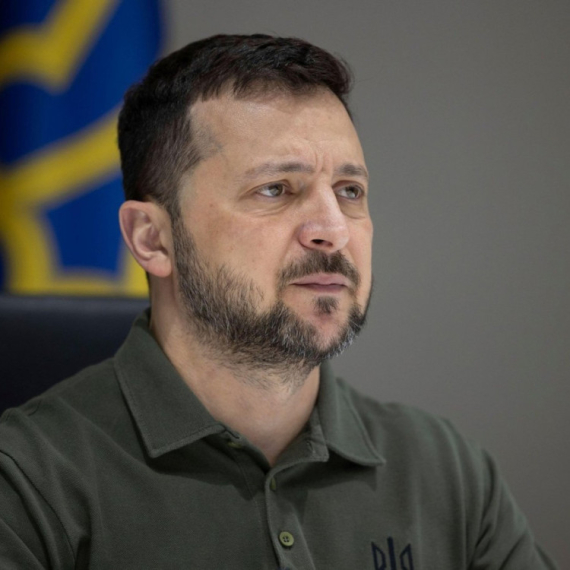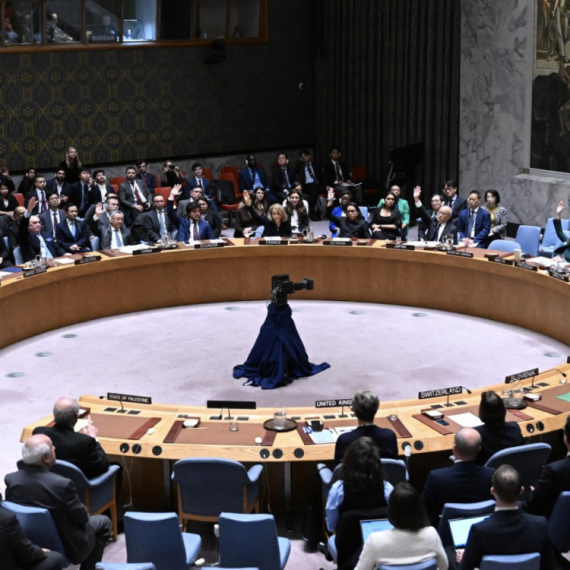Jeremić, Bildt: Serbia's future in EU
Swedish and Serbian Foreign Ministers Carl Bildt and Vuk Jeremić agree that Serbia’s future lies in the EU.
Tuesday, 09.09.2008.
11:28

Swedish and Serbian Foreign Ministers Carl Bildt and Vuk Jeremic agree that Serbia’s future lies in the EU. Speaking today after a meeting in Stockholm, Bildt said that there was “nothing to be feared” about Serbia’s initiative before the UN General Assembly for the International Court of Justice (ICJ) in The Hague to give its judgment on the legality of Kosovo’s unilaterally proclaimed independence, the DPA agency reported. Jeremic, Bildt: Serbia's future in EU Even though pressure had been put on Serbia to refrain from its initiative, some countries who were most outspoken in their opposition to the move have since toned their words down. The Swedish foreign minister said that he was not afraid of what the Court had to say, and that he believed in international law. Bildt said that there was no reason to fear Serbia’s initiative. “Even though Serbia and Sweden do not agree about all the aspects of the Kosovo question, both countries are interested in stability, progress and security for all Kosovo’s citizens,” he said after a meeting with Jeremic. “We need to continue dialogue on how to achieve that, regardless of our differences,” Bildt underlined. “As far as not agreeing on Kosovo’s status, I am giving lawyers’ opinions the benefit of the doubt, and don’t want others to argue over it. I can see the political logic that stands behind this move. We believe in international law. The opinion of the International Court of Justice could help achieve progress on this issue. I do not think that things will change much, because the facts have already been confirmed,” surmised the minister. Jeremic said that Serbia would not be suing anyone, but asking the ICJ a “simple question” regarding the proclamation of Kosovo independence, adding that he hoped that the UN Security Council would support the initiative. Jeremic said that Serbia had warned many times that the unilateral declaration of Kosovo’s independence could destabilize other parts of the work and that this had occurred. “I hope we will not be the part of the world where people realize their secessionist ambitions outside international institutions. By asking for the opinion of the International Court of Justice, Serbia is offering a model for rallying to the defense of international law,” he explained. Bildt and Jeremic agreed that the future of Serbia was within the European Union and that progress had been made as far as that goal was concerned. Bildt said that there was no longer any doubt as to Belgrade’s cooperation with the Hague Tribunal, adding that he was convinced that Serbia was working hard to locate and arrest Ratko Mladic. Jeremic said that Belgrade’s behavior since Kosovo’s unilateral independence declaration had been “highly restrained” and that the Serbian authorities had chosen to fight it using diplomatic means and international law, and not sanctions or other means. Jeremic said that one of Serbia’s main priorities was to receive EU candidate status before Sweden took over the EU presidency next July.
Jeremić, Bildt: Serbia's future in EU
Even though pressure had been put on Serbia to refrain from its initiative, some countries who were most outspoken in their opposition to the move have since toned their words down.The Swedish foreign minister said that he was not afraid of what the Court had to say, and that he believed in international law.
Bildt said that there was no reason to fear Serbia’s initiative.
“Even though Serbia and Sweden do not agree about all the aspects of the Kosovo question, both countries are interested in stability, progress and security for all Kosovo’s citizens,” he said after a meeting with Jeremić.
“We need to continue dialogue on how to achieve that, regardless of our differences,” Bildt underlined.
“As far as not agreeing on Kosovo’s status, I am giving lawyers’ opinions the benefit of the doubt, and don’t want others to argue over it. I can see the political logic that stands behind this move. We believe in international law. The opinion of the International Court of Justice could help achieve progress on this issue. I do not think that things will change much, because the facts have already been confirmed,” surmised the minister.
Jeremić said that Serbia would not be suing anyone, but asking the ICJ a “simple question” regarding the proclamation of Kosovo independence, adding that he hoped that the UN Security Council would support the initiative.
Jeremić said that Serbia had warned many times that the unilateral declaration of Kosovo’s independence could destabilize other parts of the work and that this had occurred.
“I hope we will not be the part of the world where people realize their secessionist ambitions outside international institutions. By asking for the opinion of the International Court of Justice, Serbia is offering a model for rallying to the defense of international law,” he explained.
Bildt and Jeremić agreed that the future of Serbia was within the European Union and that progress had been made as far as that goal was concerned.
Bildt said that there was no longer any doubt as to Belgrade’s cooperation with the Hague Tribunal, adding that he was convinced that Serbia was working hard to locate and arrest Ratko Mladić.
Jeremić said that Belgrade’s behavior since Kosovo’s unilateral independence declaration had been “highly restrained” and that the Serbian authorities had chosen to fight it using diplomatic means and international law, and not sanctions or other means.
Jeremić said that one of Serbia’s main priorities was to receive EU candidate status before Sweden took over the EU presidency next July.


























































Komentari 6
Pogledaj komentare